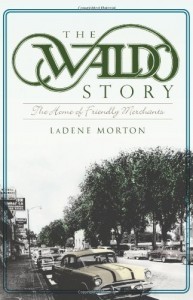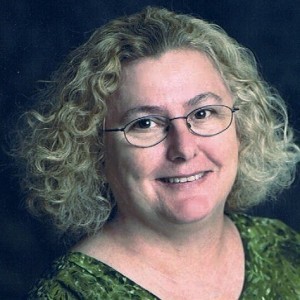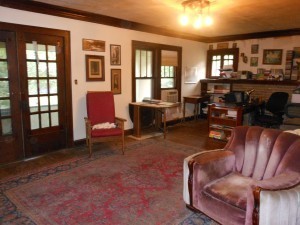Writer Interview: LaDene Morton
I came to know author LaDene Morton through Women Writing the West, an organization that promotes writers who showcase women against the backdrop of the American West. LaDene put forth a tremendous effort in organizing the 2013 Women Writing the West conference in Kansas City, where I now live. Over delicious lunch dates at Panera – our signature meeting spot – LaDene and I have come to know and respect each other as writers, teachers, speakers, and human beings trying to figure out how to communicate stories to the world.
“Artist / Writer Interviews” spotlight working artists and writers – the spaces in which they work, where they find their inspiration, what makes them unique. I feature one artist or writer each month. If you are a working artist or writer who would like to be considered for this series, or if you want to recommend an artist or writer to interview for this series, please contact me.
1) Where (in what state) do you write?
I write in Missouri, specifically Kansas City.
2) Do you find that place – your geographic surroundings – influence your writing?
Photo courtesy of LaDene Morton.
Absolutely! When I envisioned the story of my novel, What Lies West (a historical fiction set in the 1850s American West), I began the protagonist’s journey right here, where so many real pioneers started their own westward journeys. The neighborhoods in which I have lived and worked throughout my time in Kansas City (I have lived here since the late 1970s) became the subjects of my two non-fiction local history books, as well as the one currently in the works.
I find my geographical surroundings also influence my ideas for future projects. Regardless of whether these ideas ever materialize into story, I can hardly drive around town, read the local newspaper or recall childhood memories in the area that don’t evoke some sort of narrative or character idea.
3) Describe your writing space. How did it come into being, and why is it significant?
My “sidekick,” Roger, and I live in what was originally an old two-story duplex. He owned the duplex when we met 30 years ago. When I finally moved in, I secretly coveted the upstairs apartment, which was just a storage space as far as Roger was concerned. Slowly, I began to reclaim it, and now, the whole front half of the apartment is my office. The two apartment rooms are open to each other, with the old dining room area serving as my library, and the living room as my work space. It is wonderful and bright, with French doors that open to a large balcony. It is a little like being in a tree house – with fewer bugs.
The main reason I’d say the space is significant is that it is almost exactly how I envisioned my perfect writing room when I was young: lots of windows, lots of books, filled with my favorite pastimes. Long before I knew I wanted to write, I knew I wanted to work in a room like this. I feel completely comfortable, creative and productive there.
LaDene Morton’s writing space. Photo courtesy of Ladene Morton.
4) When do you do your writing?
I write when I can. I am a community development planner who works closely with non-profits – this is my work that pays the bills. I wish I possessed more discipline around my writing time, but the reality of my job doesn’t always make disciplined writing time practical. Generally, whenever I have a paying gig for an organization, I simply put my own writing projects aside. Then, when it’s time for my project, I treat that like I would a client’s project. It’s a 9-to-5 effort, organized on the calendar for research, drafting, writing, editing, production, the whole works. I don’t know any other way to work, regardless of what the project is. But it is during those periods of actual writing – usually in the mornings, when the world is still filled with possibilities and I have the most mental energy – that I generate the most and best creative work.
5) Where do you find inspiration for what you write?
Gee, where don’t I find it? Seriously, one of my personal challenges is to figure out how to decide which (if any) of the wild ideas that come into my head are worth pursuing. I find inspiration in everything, from the pages of history to the latest news story.
6) Why do you write?
I write because I love a good story, and when I think I have one, either one I’ve invented (fiction) or one I’ve found (nonfiction), I can’t wait to share it. And if I think I’m the only one who can share it, or the best one to share it, then I really get excited to write.
7 ) What are you working on right now? How did the project come to you, and why is it important?
) What are you working on right now? How did the project come to you, and why is it important?
For the last five years, I have been focusing on local history. I have completed two books on the history and evolution of Brookside and Waldo, two communities in the heart of Kansas City, and my current project focuses on the history of Kansas City’s Country Club District. It is likely to be my final local history, at least in this particular area of Kansas City community history. The project came to me largely as a result of research for the other two projects. I found the historical importance of this area – both locally and nationally – is either forgotten or misunderstood. Anytime we forget why something is important, we run the risk of losing it completely.
8) What is one of the most important lessons you have learned through the writing process?
I have learned how to subordinate your ego for the greater good of the piece. For example, I know the value of keeping my work on a tight leash and resisting the indulgences of personal gratification that don’t do the work one damn bit of good. I also have learned to ignore the bruising the ego from enduring criticism. You do need a thick skin to be a writer. But more than that, it’s about putting the focus more on the work than on yourself.
9) How do you balance time to write with other facets of life that demand attention?
I don’t balance them at all. I am the world’s worst when it comes to balance. Perhaps if I had taken up writing earlier in life before all of my habits (particularly the bad ones) were in place, I would be better at it. As it is, I write when I am fired up and ready to go, and if other things have to take a back seat, so be it. Unfortunately, sometimes it’s the other way around. When chores, errands and obligations demand my attention, the writing has to wait its turn.
10) Who is your favorite author? Why? How were you first exposed to this writer?
There are too many variables to pick just one. Favorite for style? For a heart-thumping plot? For superb characters or beckoning settings? I just can’t do it. But I will say that one author who stands out on each of those lists is Emily Bronte. Jane Eyre was my first exposure to literature. I read a lot of books as a kid, but I knew I had entered a whole new realm when I read Bronte. Then Dickens, and Twain, and later Vonnegut and Marquez. I am a sucker for a great novelist, that’s for sure, no matter their style.
11) Do you find that seasons inform your work?
I have never considered that before. I don’t know that seasons inform my work. I do know that the older I get, the more energy and hope I have once spring comes around. Winter sometimes leaves me feeling too bleak to write. It is definitely my least productive time of the year.
12) Who have been some of your biggest influences?
Mostly names that don’t mean anything to anyone but me, because of personal stories I’m not yet ready to share. But the people in these stories have influenced me as a person, and more than influencing me as a writer, each of their influence has had a part, in some way, to leading me to writing.
*Learn more about LaDene’s work by visiting her Amazon page, or her corner at The History Press.





